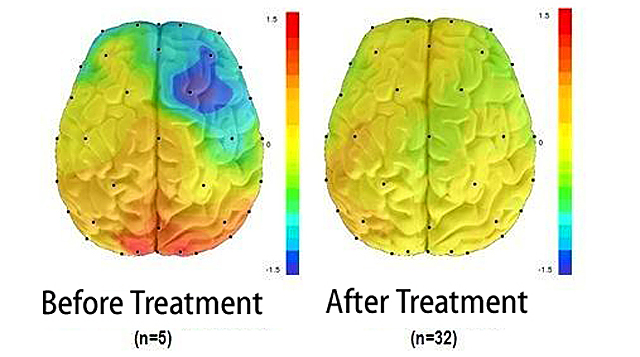NEUROFEEDBACK
 Neurofeedback is a type of biofeedback that focuses on the brain and central nervous system. Like other forms of biofeedback, it enables patients to change physiological activity—in this case, brainwaves—in order to enhance health and well-being. It uses electroencephalography (EEG, a common tool in neurology) to “feed back” information to the brain.
Neurofeedback is a type of biofeedback that focuses on the brain and central nervous system. Like other forms of biofeedback, it enables patients to change physiological activity—in this case, brainwaves—in order to enhance health and well-being. It uses electroencephalography (EEG, a common tool in neurology) to “feed back” information to the brain.
. If you’re focused and relaxed, you’ll enjoy the images and sounds on the computer. When your attention wanders or you become anxious, however, the pictures and sounds fade in and out until your brain gets back on track. Sessions last about half an hour and are repeated as needed, usually half a dozen to 20 times, or as long as it takes for patients to normalize brainwaves on their own.
Neurofeedback has been shown in hundreds of clinical studies to be an effective therapy for anxiety, depression, insomnia, addiction, and numerous other cognitive, emotional, and neurological conditions. And because patients are learning—on a more or less subconscious level—to make desired changes such as slowing down or speeding up brainwaves, improvements endure long after the treatment course is completed.
